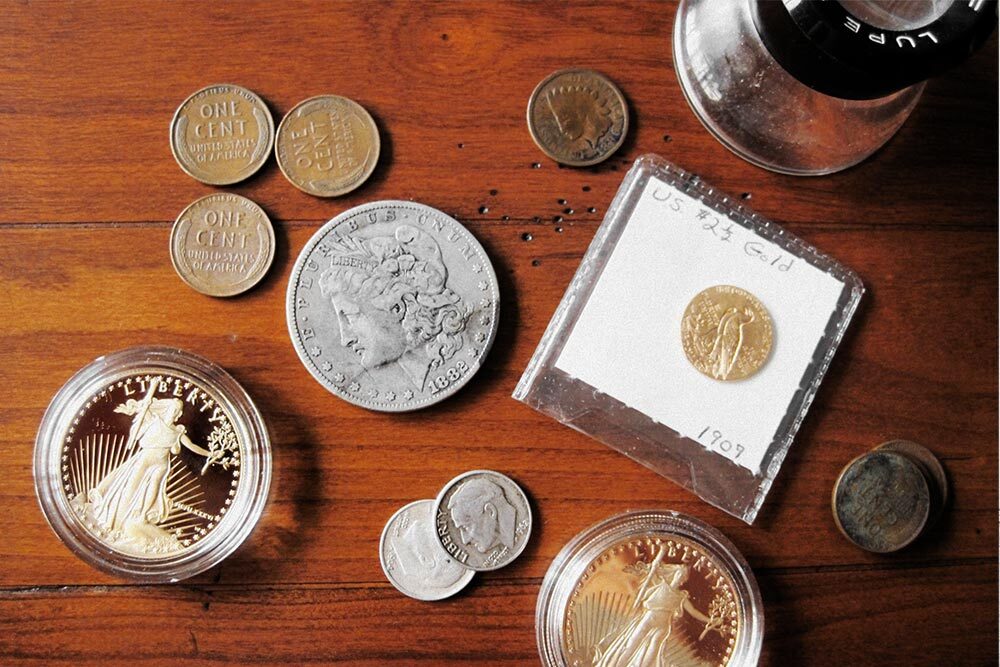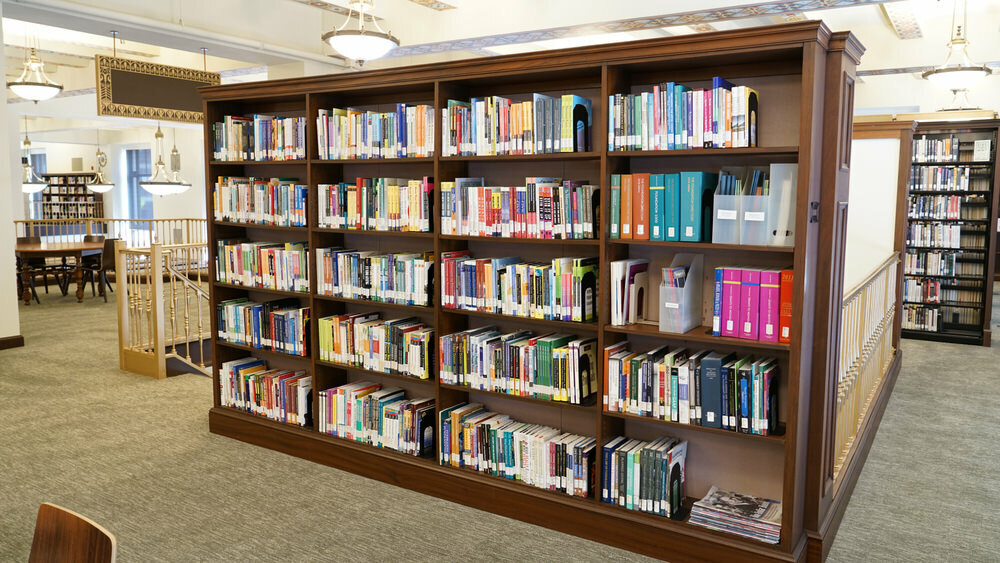Finding the Value of Old Coins & Paper Money
In this research guide, learn how you can determine the value of old coins, paper money, and other rare currency.

What is Value?
There are four different types of "value" for coins and bills:
- Book (or "catalog") value
- Buy price
- Retail value
- Wholesale value
Book value is an average of many dealers' retail prices for a certain coin or bill; in other words, what the average dealer would sell it for. This price is called the "book" value because you would typically find it in a published book such as the Standard Catalog of World Coins.
Buy price is the price that a dealer would be willing to pay you if you sold them your coin or bill.
Retail value is the price for which a dealer would sell a coin or bill to you. Because a dealer needs to make a profit on the resale of the item, they usually offer lower buy prices than retail prices.
Wholesale value is the price for which a dealer would sell a coin to another dealer. Wholesale value can also be a discounted price that a dealer would accept from a buyer who is purchasing in large quantities
Factors that Affect Value
There are several factors that influence the value of a coin or bill:
- Rarity
- Demand
- Condition
Rarity involves the number (or "mintage") of coins or bills that were originally produced. Rarity also involves the number of those coins or bills that are still around today.
Demand varies according to the popularity and availability of a coin or bill:
- The demand might be higher or lower in different areas of the world, or during different years
- To see demand in action, look at the prices on eBay's coin and paper money "category" page - when more people want to buy a certain item (a high demand), the price often goes up.
Condition or grade:
- Most price guides give values for several grades.
- Coins and bills can grade from "mint" or "uncirculated" (no signs of wear) to "poor".
- When a bill is in mint condition, it is worth more than the same bill in poor condition.
- There are specific standards that define what "mint," "poor," and other grades mean:
- If you're interested in coins, see the American Numismatic Association's Coin Grading web page.
- If you're interested in paper money, refer to the International Bank Note Society's grading standards.
If a coin is too damaged to have value as a collectible, its metal content (the amount of gold or silver in the coin) may have a "basal" value. According to the Official Know-It-All Guide: Coins, you can find out the value of the metal if you:
- Multiply the weight of the coin by the percentage "fineness" of the coin (the percentage of the coin that is gold or silver). This will establish how much of the precious metal you have to sell.
- Multiply the result of the first calculation by the current price of the precious metal in the coin.
Kitco gives live market quotes for gold, silver, and other metals that can be used to make this calculation.
Finding Currency Values
Before you begin looking for the value of a coin or bill, you need to know:
- Whether the coin or bill is a "general issue" or a "commemorative."
- Some price guides have separate sections for commemoratives or other "special" issues.
- Which country issued the coin or bill.
- A coin or bill's design often includes the name of the country, in that country's official language.
- Collectpapermoney.com has a list of image, denomination, and keyword "identifiers" that could help you figure out the issuing country.
- Nations Online offers a list of all the countries of the world and their local names.
- Banknote World includes scanned images of paper money.
- If you are researching the value of an older coin or bill, keep in mind that the country's name may have changed over time.
- A coin or bill's design often includes the name of the country, in that country's official language.
- The date (year) of the coin or bill.
- Important note: CalendarHome.com offers a calendar that can convert between Julian, Persian, Hebrew, Islamic, and other dating systems to the western (Gregorian) calendar.
- The condition of the coin or bill.
Once you know the date, country, and issue of a coin or bill, you can look up the value.
If your foreign coin or bill is only worth its "face" value, use OANDA to convert its value to U.S. dollars.
United States Coins and Bills
Guide Book of United States Coins (also known as the "Red Book"), is considered the standard reference for U.S. coin values.
Here are some other sources of information about U.S. currency:
- CoinResource's Coin Encyclopedia - In-depth historical information about U.S. coins.
- How to Grade U.S. Coins
- U.S. Mint's home page - History of the U.S. Mint
Appraisals
The Pratt Library cannot appraise coins or bills. Hire a professional appraiser to grade your coins and tell you how much it is worth. The American Society of Appraisers and International Society of Appraisers have searchable directories of professional appraisers.
A dealer might also be able to help. The American Numismatic Association's offers a list of dealerships by state. You might also want to try the Professional Numismatists Guild's Dealer Directory. If you want someone to appraise your paper money, the Society of Paper Money Collectors recommends that you visit a professional currency dealer.
Where to Learn More About Coins & Bills
Websites
- American Numismatic Association Frequently-Asked Questions (FAQs)
- Collectpapermoney.com
- Coinsheet's - International Mints
- Coin Today
- Coin World
Join a Collectors Club
- American Numismatic Association
- International Bank Note Society
- Society of Paper Money Collectors
- Maryland State Numismatic Association has a helpful list of local coin clubs on its website.
- Go to a show! Coinshow.com lists upcoming shows in Maryland and other states.
Before You Buy
Unfortunately, "collectible" coins, gold bars, and other "currency" is a common venue for scam artists. Visit your local library and read as much about the hobby as you can before making any purchases. The Federal Trade Commission offers a helpful article, "Investing in Collectible Coins." The American Numismatic Association has a page of Consumer Awareness Resources.
Also, it's very important to vet the reputation of the dealer you are purchasing from. Though there are no guarantees, a coin dealer's membership in the American Numismatic Association or the Professional Numismatists Guild is a good sign. Both the ANA and the PNG require their members to uphold a strict code of ethics.
In Maryland, the Consumer Protection Division of the Attorney General's Office mediates complaints between customers and businesses.
For Further Assistance
Although the Pratt Library does not appraise coins or bills, we are happy to provide assistance in finding the "book" value for your currency by using print and electronic resources at our library.
As Maryland's State Library Resource Center, the Pratt Library has a broad collection of resources for coin and bill collectors. What we've mentioned in this guide is only the tip of the iceberg. If you've tried the sources linked above and you still can't find what you're looking for please contact us and our librarians will be happy to assist you in browsing the reference materials.
Contact us through our Ask A Librarian Service , call (410) 396-5430, or write:

